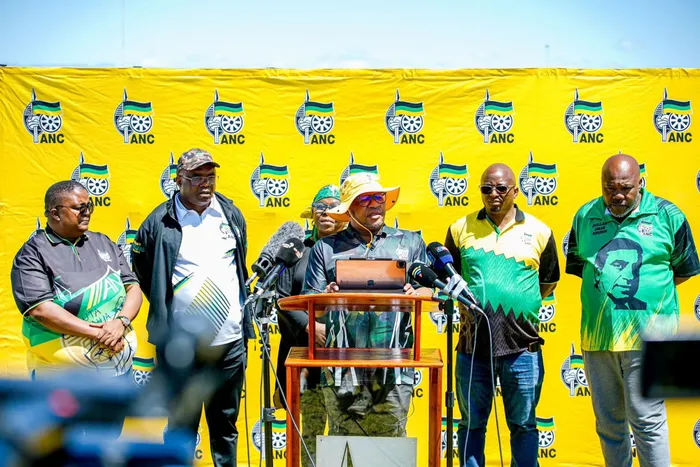Frantz Fanon’s analysis of post-colonial states provides insight into the ANC's current predicament

Contemplation: The ANC’s 113th anniversary offers an opportunity for reflection.
Image: File
Melanie Peters
The ANC has reached a significant milestone as it marks its 113th anniversary, an opportune time for the continent's oldest liberation movement to reflect.
The celebration is overshadowed by a notable crisis of the party's legitimacy, exacerbated by a marriage of inconvenience to the DA, which is already showing cracks.
More than 30 years into democracy, the party's decline is evident. It is marred by corruption, infighting, and an inability to fulfil its promises.
The party's historical reputation for the liberation of our people from the shackles of apartheid can only serve it for so long.
Frantz Fanon’s analysis of post-colonial states can provide insight into the ANC's current predicament. In “The Wretched of the Earth,” Fanon argues that liberation movements often fail to transform the country once elected. The sad reality is that those who achieve liberation neglect the very people they sought to free. He emphasises that leadership becomes consumed by personal gain rather than societal transformation—a festering malaise gripping the ANC. The president’s cash-stuffed sofa scandal is just one example of unchecked accountability, leading to further democracy degradation.
Economic and social justice aspirations drove the ANC’s ascension to power in 1994. Yet, like many liberation movements, it is ensnared in what Fanon described as a neo-colonial trap, where the new elite merely replaces the old powers without addressing systemic disparities.
As the party's leadership transitioned into a class of political entrepreneurs, they became more focused on self-interest than the upliftment of the people. Many current governance issues—marked by extensive corruption and state capture—epitomise Fanon’s notion of leadership that chooses crony capitalism over the welfare of the people.
Fanon's critique highlights the lack of genuine national consciousness among post-colonial leaders, who often rely on empty rhetoric rather than meaningful action. The ANC’s diminishing ability to mobilise popular support underscores this disconnect. Instead of creating real economic change, the ANC has further entrenched the economic gulf between the rich and poor.
The country's wealth remains in the hands of a few.
For true freedom, Fanon suggests we need to rethink how the state works and that the people should lead change. If the ANC wants a future, it must confront its mistakes and, ultimately, commitment to people-centred politics.
However, the deep entrenchment of patronage networks and self-serving leadership makes this a formidable challenge.
A good start would be for the party to offer a mea culpa in the form of a swift strategy derived from exiting its unholy union with the DA and aligning with centre-left parties, which have more in common with the progressive Freedom Charter.
** The views expressed do not necessarily reflect the views of IOL or Independent Media.
Related Topics: